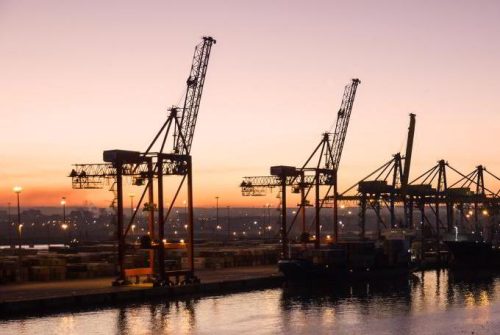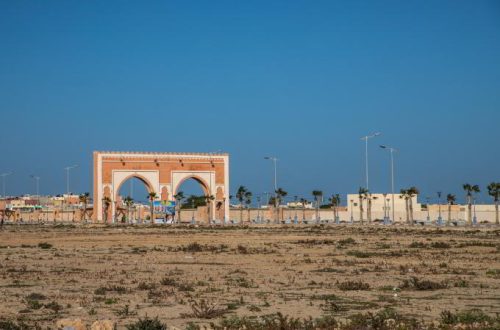The Mediterranean. Secure ports for the Russians.

Moscow responds to Europe’s embargo by finding new landing places along the coasts of North Africa and the Middle East. And having its oil tankers sail under the Gabonese flag.
More than two years after the blockade triggered together with the first sanctions launched by Brussels in response to the invasion of Ukraine, Moscow has identified alternative landing places to those in Europe for its vessels transiting the Mediterranean, finding allied shores along the coasts of the Middle East and North Africa.
“The Russians can dock in Libya, they are welcomed by Turkish ports and are among the few who continue to calmly cross the Suez Canal with dark fleets (ghost fleets, ed.) transporting their oil”, explains Gian Enzo Duci, professor of economics at the University of Genoa in Italy. “Russian exports are continuing in quantities no less than when they could do business with Europe, concentrating mainly on Asia.”
In the western Atlantic, Russian shipowners, unable to stop their ships for refuelling and repairs at the port of Las Palmas, in the Canary Islands, have begun to look with more interest at Moroccan ports.
According to a reconstruction by Africa Intelligence, in recent months, Moscow has found a place in the sun, particularly in the ports of Casablanca and Agadir.

Cargo sea port, Casablanca, Marocco. Russian shipowners have begun to look more closely at Moroccan ports, particularly Casablanca and Agadir. iStock/Travel Faery
In October 2023 four entrepreneurs, the Russians Mikhail Burykin, Aleksei Markov and Sergey Lysenko and the Moroccan Mohammed Amine Cherkaoui, secretly purchased Chantiers et Ateliers du Maroc (Cam), a leading ship repair company in Morocco in which the French Naval Group builders were also interested. The company, on the verge of bankruptcy – which then arrived at the beginning of 2024 – was bought at the rock-bottom price of 7.5 million dirhams (around 668 thousand euros). Shortly after, the Russian-Moroccan consortium became the majority shareholder of Cam’s parent company, Ateliers et Chantiers d’Agadir et du Souss (Acas), based in Agadir.
In the corporate reorganization of Acas, the majority shareholders now also include the Moroccan billionaire Bennani-Smirès family, the Al Mada holding company owned by the Moroccan royals and the Société Chérifienne de Matériel Industriel et Ferroviaire.
The man who acted as a bridge between Russian and Moroccan interests in this operation was Mohammed Amine Cherkaoui, a member of the board of directors of Citibank Maghreb, but not only that. Cherkaoui has long worked in tandem with Mikhail Burykin. Together they manage a vast network of activities between Casablanca, Agadir and Dakhla, in Western Sahara: from fishing to real estate, from the supply of medical products and devices to energy.
In July 2023, on the occasion of the second Russia-Africa summit, Cherkaoui was part of the delegation flown to St. Petersburg together with Moroccan Prime Minister Aziz Akhannouch.
In October, therefore in the period in which Chantiers et Ateliers du Maroc was purchased, Cherkaoui and Burykin led a group of Moroccan entrepreneurs to Belarus, where they organised meetings with local operators in the automotive and urban transport sector, including MAZ, BKM Holding and BelAZ. Two months later, at a forum dedicated to oil & gas in Tyumen, Russia, for Water and Energy Solutions – a company specialising in the production of hydroelectric energy of which Cherkaoui is CEO – they negotiated a contract for the supply of equipment with the local Oil Tech company.

Entrance door of Dakhla, a city of Western Sahara. It is of particular interest to Moscow. 123rf
“In terms of maritime traffic, Russia’s interest in Africa remains, however, oriented more than anything else towards the search for a country that guarantees a flag of convenience for its ships,” continues professor Duci. “In light of the European ban, Moscow needs to use ships with third-party flags to transport its crude oil, which it now sends to destinations further away than in the past. The latest data on Russian oil sales, in fact, see India and China as its two main buyers.”
Ships from most countries in the world have no intention of defying the sanctions launched by Europe because this would mean being ousted from traditional markets. There are nations, however, willing to take this risk. “A few months ago, the flag of Gabon “exploded” and became the second most used in Africa after that of Liberia,” continues Duci. “It emerged that ships flying the Gabonese flag had previously been registered under other flags, especially those of Malta and Cyprus.” According to a Bloomberg investigation, in January this year, over one hundred oil tankers were flying the Gabonese flag, while in 2023 there were 20. It is easy to imagine who was the first to use these ships to circumvent the European embargo. (Tanker ship sailing through blue and calm Mediterranean Sea. Shutterstock/Mariusz Bugno)
Luca Bussotti



